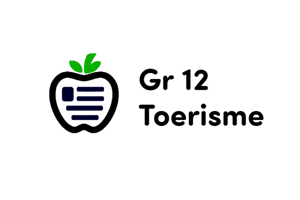Podcast
Questions and Answers
What is the first stage of the risk management process?
What is the first stage of the risk management process?
- Risk analysis
- Risk identification (correct)
- Risk treatment
- Risk control
Which method is NOT used for risk identification?
Which method is NOT used for risk identification?
- Calculating financial losses (correct)
- Discussions with management
- On-site inspections
- Review of historical activities
What does risk analysis primarily compare?
What does risk analysis primarily compare?
- Employee safety and productivity
- Risk frequency and severity (correct)
- Cost and benefits
- Mitigation strategies and expenses
Which of the following describes exposure avoidance in risk control?
Which of the following describes exposure avoidance in risk control?
Under what conditions might operators need to respond to a risk based on analysis?
Under what conditions might operators need to respond to a risk based on analysis?
What is the primary goal of risk treatment?
What is the primary goal of risk treatment?
Which analysis method provides numerical values for risk assessment?
Which analysis method provides numerical values for risk assessment?
Which factor is NOT relevant in assessing the consequence of a risk?
Which factor is NOT relevant in assessing the consequence of a risk?
What is a crucial component of contingency plans for crisis preparedness in tourism?
What is a crucial component of contingency plans for crisis preparedness in tourism?
Which of the following is important to establish immediately following a crisis event?
Which of the following is important to establish immediately following a crisis event?
What does a successful recovery program in tourism need to prioritize?
What does a successful recovery program in tourism need to prioritize?
Which procedure should NOT be included in a crisis management training drill?
Which procedure should NOT be included in a crisis management training drill?
In the context of crisis response, what is most critical during the first hour?
In the context of crisis response, what is most critical during the first hour?
What role does a spokesperson play in a crisis contingency plan?
What role does a spokesperson play in a crisis contingency plan?
Which element is NOT a part of a risk/threat contingency plan?
Which element is NOT a part of a risk/threat contingency plan?
What is an essential part of a training drill for crisis management?
What is an essential part of a training drill for crisis management?
What is an example of loss reduction in risk management?
What is an example of loss reduction in risk management?
What does risk transfer imply in the context of risk management?
What does risk transfer imply in the context of risk management?
Which action is associated with risk retention?
Which action is associated with risk retention?
How can an organization mitigate risks without avoiding them?
How can an organization mitigate risks without avoiding them?
What is the purpose of charging premiums to an insurer in risk management?
What is the purpose of charging premiums to an insurer in risk management?
Which of the following is NOT an example of risk treatment?
Which of the following is NOT an example of risk treatment?
What does the act of self-insurance involve?
What does the act of self-insurance involve?
Which scenario typically leads to a decision to change a tourist destination?
Which scenario typically leads to a decision to change a tourist destination?
What is a tourism crisis defined as from a wholesaler's perspective?
What is a tourism crisis defined as from a wholesaler's perspective?
Which of the following is NOT considered a crisis event beyond management's control?
Which of the following is NOT considered a crisis event beyond management's control?
What is the first stage in the Four R Concept of tourism crisis management?
What is the first stage in the Four R Concept of tourism crisis management?
What analysis is essential for reducing the impact of a potential crisis?
What analysis is essential for reducing the impact of a potential crisis?
Which of the following is an example of a crisis event resulting from management failure?
Which of the following is an example of a crisis event resulting from management failure?
What does the 'recovery' stage in the Four R Concept emphasize?
What does the 'recovery' stage in the Four R Concept emphasize?
Which of the following crises would typically require effective contingency planning?
Which of the following crises would typically require effective contingency planning?
What crucial step follows the identification of a potential crisis in the reduction stage?
What crucial step follows the identification of a potential crisis in the reduction stage?
What is the primary focus of the tourism risk management process?
What is the primary focus of the tourism risk management process?
How can effective risk management benefit the tourism sector?
How can effective risk management benefit the tourism sector?
According to the content, what dual roles do wholesalers perform?
According to the content, what dual roles do wholesalers perform?
What is a common consequence of a poor understanding of risks in tourism?
What is a common consequence of a poor understanding of risks in tourism?
Why do tourists often prefer to travel with tour operators instead of independently?
Why do tourists often prefer to travel with tour operators instead of independently?
What is the likelihood of negative events in tourism commonly referred to as?
What is the likelihood of negative events in tourism commonly referred to as?
What is one of the main reasons clients choose wholesalers for their travel?
What is one of the main reasons clients choose wholesalers for their travel?
What does the tourism risk management process ultimately aim to achieve?
What does the tourism risk management process ultimately aim to achieve?
Flashcards
Tourism Crisis
Tourism Crisis
An event or set of circumstances seriously damaging a tourism business, brand, or destination.
Crisis Events (Uncontrollable)
Crisis Events (Uncontrollable)
Natural disasters, war, terrorism, political instability, crime, epidemics, or economic downturns.
Crisis Events (Controllable - Management Failure)
Crisis Events (Controllable - Management Failure)
Problems due to poor management, strategy, finances, data loss, or lack of contingency plans.
Four R Concept
Four R Concept
Signup and view all the flashcards
Reduction (Crisis Management)
Reduction (Crisis Management)
Signup and view all the flashcards
Risk Management (Tourism)
Risk Management (Tourism)
Signup and view all the flashcards
SWOT Analysis (Tourism)
SWOT Analysis (Tourism)
Signup and view all the flashcards
Contingency Plan
Contingency Plan
Signup and view all the flashcards
Value-added incentives
Value-added incentives
Signup and view all the flashcards
Tourism Risk Management Process
Tourism Risk Management Process
Signup and view all the flashcards
Crisis Management
Crisis Management
Signup and view all the flashcards
Disaster Management
Disaster Management
Signup and view all the flashcards
Wholesalers' Role in Risk Management
Wholesalers' Role in Risk Management
Signup and view all the flashcards
Risk Management Models
Risk Management Models
Signup and view all the flashcards
Destination Canada Model
Destination Canada Model
Signup and view all the flashcards
Recovery Alliance
Recovery Alliance
Signup and view all the flashcards
Crisis Drill
Crisis Drill
Signup and view all the flashcards
First Hour of a Crisis
First Hour of a Crisis
Signup and view all the flashcards
Crisis Spokesperson
Crisis Spokesperson
Signup and view all the flashcards
Sustainable Tourism Recovery
Sustainable Tourism Recovery
Signup and view all the flashcards
Incentive-Based Discounts
Incentive-Based Discounts
Signup and view all the flashcards
Effective Recovery Program
Effective Recovery Program
Signup and view all the flashcards
Risk Management Process
Risk Management Process
Signup and view all the flashcards
Risk Identification
Risk Identification
Signup and view all the flashcards
Risk Analysis
Risk Analysis
Signup and view all the flashcards
Risk Control
Risk Control
Signup and view all the flashcards
Exposure Avoidance
Exposure Avoidance
Signup and view all the flashcards
Loss Reduction
Loss Reduction
Signup and view all the flashcards
Risk Treatment
Risk Treatment
Signup and view all the flashcards
Probability vs. Consequence
Probability vs. Consequence
Signup and view all the flashcards
Risk Transfer
Risk Transfer
Signup and view all the flashcards
Risk Retention
Risk Retention
Signup and view all the flashcards
Example of Risk Transfer
Example of Risk Transfer
Signup and view all the flashcards
Example of Risk Retention
Example of Risk Retention
Signup and view all the flashcards
Risk Management in Tourism
Risk Management in Tourism
Signup and view all the flashcards
Importance of Risk Management in Tourism
Importance of Risk Management in Tourism
Signup and view all the flashcards
Study Notes
Tourism Crisis Risk Mitigation
- Crises are periods of intense uncertainty, marked by unpredictability and loss of control.
- A tourism crisis severely compromises the marketability and reputation of a business or destination.
- Tourism crises are categorized as events outside management control (natural disasters, war, etc.) or management failures (poor strategy, lack of contingency measures).
Tourism Crisis Management
- PATA's Four R Concept (Reduction, Readiness/Risk Preparedness, Response, Recovery) is used for crisis management.
Reduction
- SWOT analysis identifies potential crisis impacts.
- Contingency/continuity plans reduce crisis likelihood and impact.
- Reduction focuses on resuming operations after a crisis.
Readiness/Risk Preparedness
- Contingency plans address likely risks and threats.
- Staff training and regular drills are crucial.
- Plans should include assessment of likely threats, staff assignments, training, crisis scenarios, communication strategies, and backup procedures.
Response
- Crucial in the first hour after a crisis event.
- Transparency and communication with stakeholders and media is essential.
Recovery
- Effective recovery beyond marketing necessitates sustainability (economic, social, and environmental).
- Value-added incentives are as effective as price discounts.
Tourism Risk Management Process
- Risk is the probability of negative events and loss to a business/destination.
- This process involves identifying, analyzing, and controlling risks, preventing crises, and mitigating negative consequences.
- Risk analysis assesses the probability and consequence of a risk.
- Risk control involves mitigating unacceptable risks through methods like exposure avoidance and loss reduction.
- Risk treatment involves transferring or retaining risk. This might be contractual, insurance-based, or through self-insurance mechanisms.
Studying That Suits You
Use AI to generate personalized quizzes and flashcards to suit your learning preferences.




